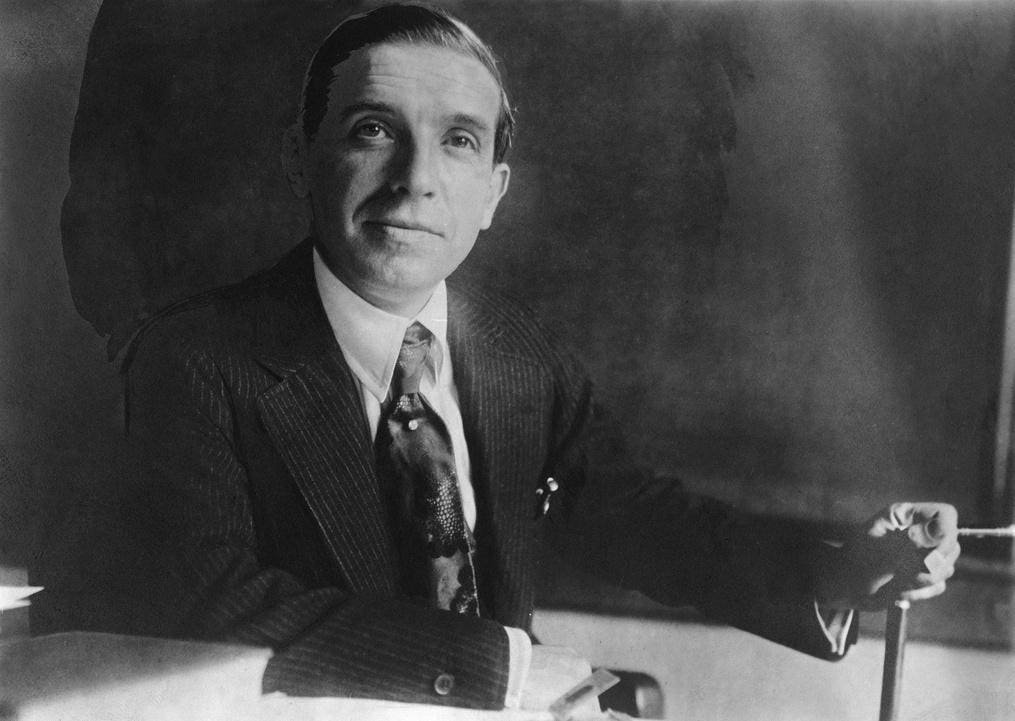(Original Caption) Charles Ponzi, the “financial wizard” of Boston who succeeded in amassing a … More
“To not be able to tell this story feels like a disservice to podcast listeners everywhere,” says Will Malnati, the founder and CEO of AT WILL MEDIA
He’s talking about the new podcast entitled Easy Money: The Charles Ponzi Story.
Ponzi, an Italian immigrant, executed a massive fraud in 1920, swindling the equivalent of $250 million in today’s money.
The groundbreaking nonfiction audio docudrama explores the unbelievable true story of the man whose name became synonymous with financial fraud.
Malnati serves as executive producer on the series. Maya Lau, an investigative journalist and financial investigator, hosts the podcast. Former a reporter for The Los Angeles Times, where her work led to new legislation overturning decades of secrecy around police disciplinary records, she is also the creator and host of the financial podcast Other People’s Pockets.
For reference, the most famous Ponzi scheme of modern times was helmed by American financier Bernard Madoff, whose investors lost $65 billion and who was sentenced to 150 years in prison for his crimes, where he died in 2021.
NEW YORK, NEW YORK – JUNE 13: (L-R) Will Malnati and Maya Lau speak onstage during Sebastian … More
In the podcast, Ponzi’s story is told using a mixture of factual investigative reporting interspersed with immersive storytelling, including audio recreations of conversations derived from Ponzi’s actual journal entries.
Structuring the narrative was ‘one of the biggest challenges’ for Lau, she admits. “I had a hard time at first envisioning, like, ‘how is this going to flow? Are the transitions going to sound awkward? Are we going to lose the audience.’”
She adds, “I had never done anything like this before, but I think I learned a lot through this process of, discovering that it’s highlighting the major turning points we want to share so that we can have a pithy story that moves
However, she says that she quickly realized that because the story is 100 years old, that, “well, we didn’t have any audio from the people that were actually involved, but it’s still important to dramatize these scenes so that listeners can actually hear from Charles Ponzi because to understand everything that happened you have to understand his thoughts and this is the best way to make that happen.”
As the project was coming together, she says that she saw that what was emerging was going to be a ‘nice mix of reporting and recreations of the important conversations, mixed with information from modern day experts.’
Sebastian Maniscalco arrives at the Oscars on Sunday, Feb. 24, 2019, at the Dolby Theatre in Los … More
The next hurdle came in casting the voice over talent for the podcast, but as Malnati points out, “Well, Sebastian Maniscalco felt like a really great fit to play Ponzi because he’s a well-respected comedian and has, in the past decade, really started to establish himself more as an actor, and his voice is also very interesting and unique, which is important in a podcast.”
He quickly adds, as he laughs a little, “Plus, but he also looks exactly like Charles Ponzi.”
Charles Ponzi, finance wizard, as he appeared after a hearing sentence was imposed upon him. Ponzi … More
For her part as the narrator, Lau says, “I do have another podcast that I host, so I’m accustomed to talking in front of a microphone, but there’s a big difference between interviewing someone, which I’m used to, than narrating a piece. That’s a whole other thing, where people are going to be staying with your voice, and it needs to sound both totally natural and also be very specific way at the same time. I worked on this a lot to get it where I felt it was just right.”
Malnati and Lau want to be clear that it wasn’t just the two of them putting the podcast together, as Malnati outlines that, “We worked with writers, and we did storyboarding, and worked with experts so it was really was a collaboration of many people coming together. And, each person also contributing to, I think, sort of felt like they hadn’t done this before. Even Sebastian has said that this was a very new kind of project for him too. So, it feels like the freshness of it all really has added a lot to the project and how it turned out.”
(To hear the trailer for ‘Easy Money: The Charles Ponzi Story,’ please click here.)
Lau, even with her background in financial investigation, still found some of what she discovered in making the podcast unbelievable. “First of all, I didn’t really realize how common Ponzi schemes are now, and arguably, they’re even easier to do with the rise of crypto and the reach of the internet. But also, I think that we think of these financial fraudsters as these like brilliant individuals who somehow pull off the scheme, and in many ways they are very clever, but what we found is that, as one expert put it, that it’s the opposite of a perfect crime because it will always collapse eventually.”
To this end, Malnati says that with this podcast, “We really tried hard to make sure that it didn’t feel like just another scammer story, there’s so many of those. What we did was we really tried to build out the characters involved, especially the character of Charles Ponzi, in a way that makes you feel different ways about him in different scenarios throughout the series.”
While the story is over a century old, Lau says that it’s still relevant today, explaining, “You have to put it in context — at that time the financial markets were not regulated. The Securities and Exchange Commission did not exist yet. A lot of what Ponzi was doing, other than it being theft, was technically not illegal. So what you see is rampant capitalism at play and an immigrant trying to make his way via the ‘fake it till you make it’ thing, which is still very much happening, and so I think that there’s something valuable now to having the hindsight that we do, to look back 100 years ago and figure out what we can learn from this cautionary tale.”
In addition, says Malnati, “We were pretty shocked at the scale in which Ponzi schemes are continuing to prosper and happen today. And, what’s scary is that we spoke to many people who said it’s possible that some of the biggest Ponzi schemes are happening currently, and are yet to come.”
‘Easy Money: The Charles Ponzi Story’ is available via Apple podcasts.






